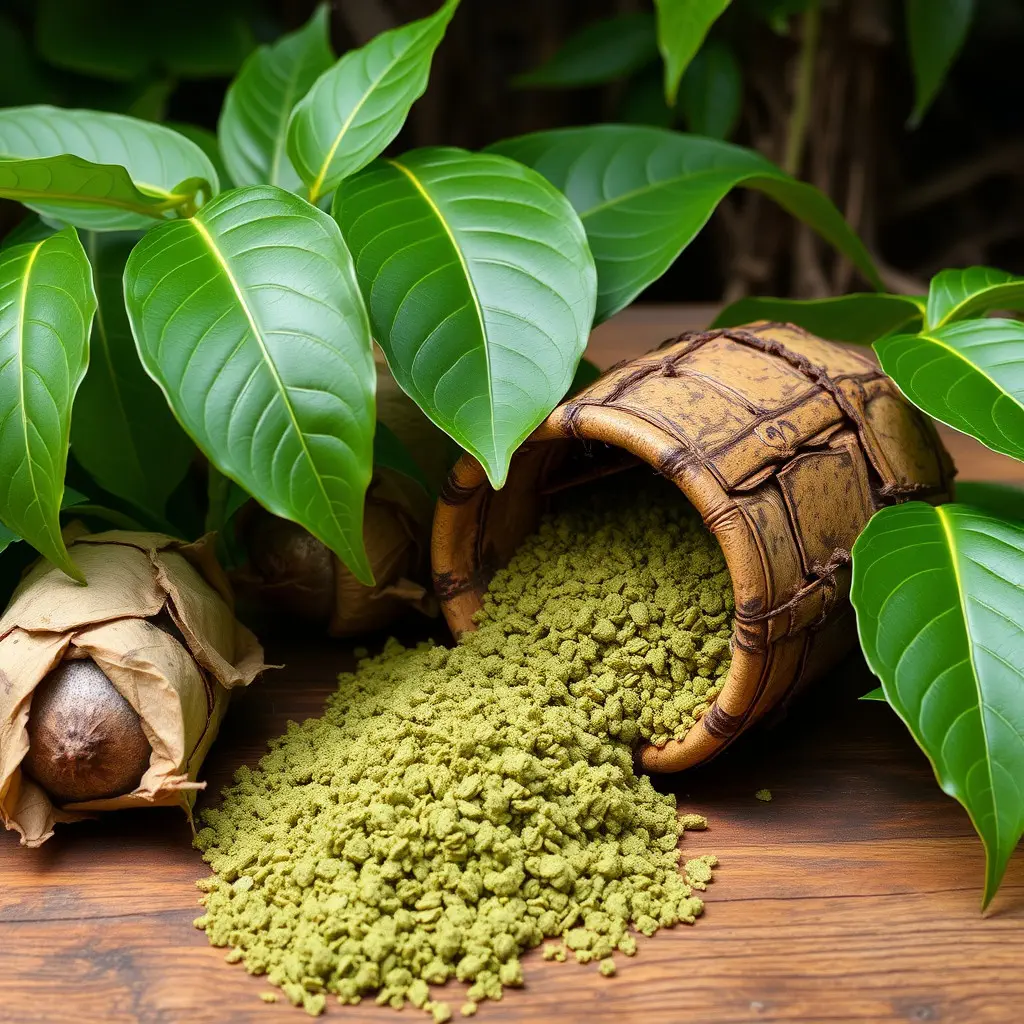Addiction treatment with kratom is a holistic approach that combines the natural herb Mitragyna speciosa with therapeutic interventions, mindfulness practices, and social support to address the complex root causes of addiction. Effective for symptom relief, especially in early recovery, kratom should be integrated into a comprehensive plan under professional guidance, alongside therapy and lifestyle changes. Holistic strategies promote self-care and emotional healing, leading to better outcomes and lower relapse rates compared to traditional treatments, while personalized care ensures safety and effectiveness.
In today’s digital era, holistic recovery approaches are gaining traction as effective alternatives for addiction treatment. Understanding addiction from a holistic perspective involves recognizing the interconnectedness of physical, mental, and emotional well-being. This article explores how Kratom, an herbal extract, can play a role in this context. We delve into the benefits and considerations of integrating Kratom into comprehensive addiction treatment plans, with a focus on SEO keywords like “addiction treatment with kratom.”
- Understanding Addiction: A Holistic Perspective
- Kratom in the Context of Holistic Recovery
- Benefits and Considerations for a Comprehensive Approach
Understanding Addiction: A Holistic Perspective

Addiction, from a holistic perspective, is not just a physical or psychological issue but a complex interplay of biological, social, and environmental factors. This understanding is crucial when considering effective addiction treatment with kratom as part of a broader recovery approach. Kratom, derived from the Mitragyna speciosa plant, has gained attention for its potential in managing withdrawal symptoms and aiding in rehabilitation. However, it’s not just about the botanical itself; a holistic strategy incorporates various complementary modalities like therapy, mindfulness practices, and social support networks.
This comprehensive view acknowledges that addiction often stems from underlying issues such as trauma, stress, or mental health disorders. By addressing these co-occurring conditions alongside kratom supplementation, a truly holistic recovery approach can be achieved. Such an approach fosters not just physical detoxification but also emotional healing, cognitive restructuring, and the development of healthier coping mechanisms.
Kratom in the Context of Holistic Recovery

In the realm of holistic recovery, where the focus is on nurturing both the mind and body, Kratom has emerged as a potential ally in addiction treatment. This natural herb, derived from the Mitragyna speciosa tree, has been used for centuries in Southeast Asia for its medicinal properties. Today, it’s gaining recognition in modern addiction therapy due to its unique effects on the body and brain. Kratom interacts with opioid receptors, offering relief from withdrawal symptoms and cravings without the same level of adverse effects associated with prescription medications.
Holistic recovery approaches aim to address the root causes of addiction, and Kratom can play a role by providing symptom management. It’s particularly useful in early recovery stages, helping individuals cope with intense physical and emotional withdrawal. However, it’s crucial to note that Kratom is not a cure-all; it should be part of a comprehensive treatment plan that includes therapy, support groups, and lifestyle changes. The use of Kratom in addiction treatment requires professional guidance to ensure safety and effectiveness.
Benefits and Considerations for a Comprehensive Approach

Holistic recovery approaches, including addiction treatment with kratom as a complementary therapy, offer numerous benefits. This method acknowledges the interconnectedness of physical, mental, and emotional well-being during the healing process. By addressing all aspects of an individual’s health, it fosters deeper healing and prevents relapse. Unlike traditional treatments that often focus solely on medication or therapy, holistic approaches encourage self-care practices such as meditation, exercise, and mindful eating, which can significantly enhance overall recovery outcomes.
However, implementing a comprehensive holistic strategy requires careful consideration. Personalized care is essential to ensure the chosen methods align with the individual’s unique needs and preferences. Additionally, scientific evidence supporting some alternative treatments may vary, so it’s crucial to consult healthcare professionals who specialize in addiction medicine to determine the most effective and safe combinations. A well-rounded approach that integrates proven techniques from conventional and holistic practices can pave the way for lasting recovery and improved quality of life.
Holistic recovery approaches, such as integrating kratom into addiction treatment plans, offer a promising path forward. By addressing the whole person—mind, body, and spirit—these methods aim to provide more comprehensive care that goes beyond traditional 12-step programs. While further research is needed, the benefits of a holistic approach, including reduced cravings, improved mood regulation, and enhanced overall well-being, are encouraging for those seeking effective addiction treatment with kratom as a potential tool. Embracing these alternative strategies can revolutionise how we support individuals in their journeys to recovery and long-term sobriety.






